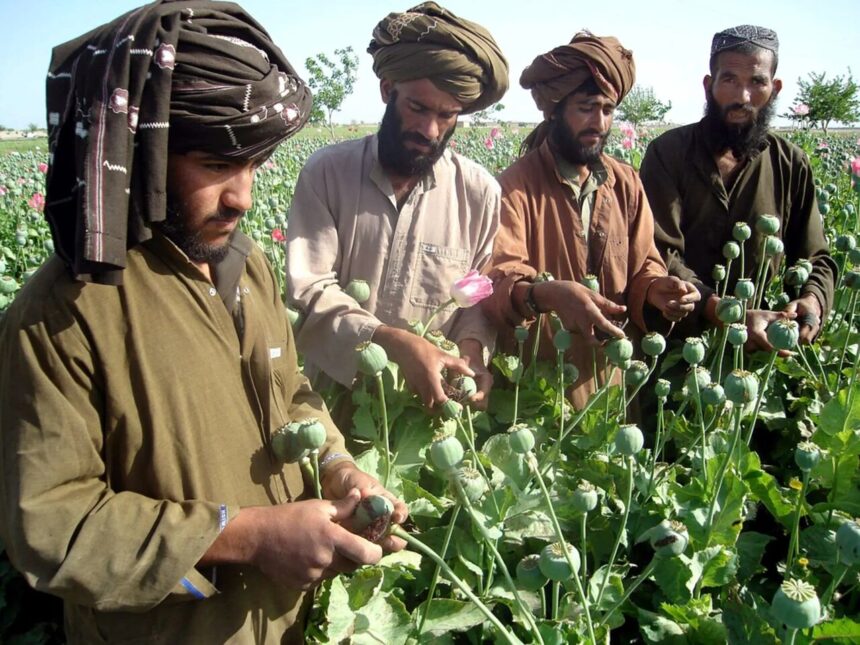RASC News Agency: Iran’s Interior Minister has expressed deep concern over Afghanistan’s evolving drug production landscape, highlighting a shift from traditional narcotics to synthetic drugs, particularly methamphetamine. Minister Eskandar Momeni noted that while conventional drug cultivation has declined, the rise in synthetic drug production, like crystal meth, poses a severe risk to regional and global security. He made these remarks on Wednesday, November 6, during a cabinet session.
Previously, Momeni had labeled Iran as a major victim of Afghanistan’s escalating drug production. On the same day, the United Nations Office on Drugs and Crime (UNODC) released a report indicating a 19% increase in Afghanistan poppy cultivation in 2024 compared to the previous year. The UN underscored the Taliban’s apparent inability to curb poppy cultivation, with the cultivated land expanding from 10,800 hectares last year to 12,800 hectares this year. However, the Taliban swiftly dismissed the UN’s findings as “baseless and far from reality.”
In a statement, the Taliban’s Interior Ministry spokesperson suggested the UN report might have been based on data collected before the group’s recent anti-drug enforcement campaigns. Spokesperson Mateen Qaneh claimed that Taliban forces have since eradicated all poppy fields, leading to a “significant reduction” in drug cultivation across the country.






